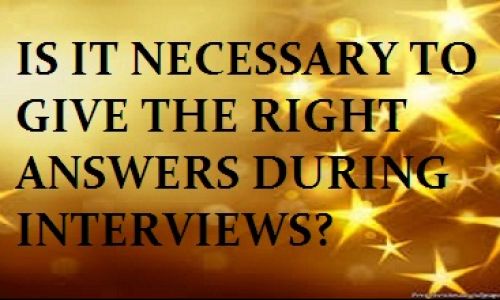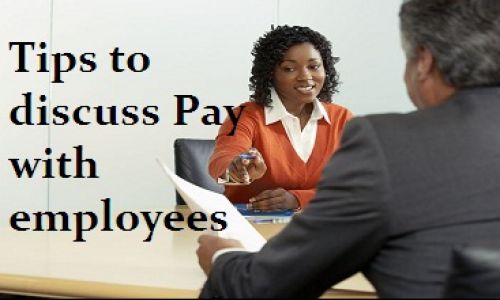World-renowned interviewer and New York Times best-selling author, Cal Fussman explains why and how companies need to ditch their canned hiring questions in favour of a storytelling-based approach.
Here is what Cal Fussman had to say about the hiring secrets:
* How can the authentic method of journalists’ questioning be translated to the hiring process?
Well, the great thing about authenticity is it’s the same in any situation, and you know it when you see it. And when you see that authenticity, you’re immediately made comfortable even if you don’t like the person and what they stand for because, at the very least, you can trust them. The first thing between interview and the subject is to create a space of trust.
If recruiters want their candidates to be authentic, they need to also be authentic. Be human. Don’t go into a stuffy room with a stack of papers and a list of questions. Go for a coffee and get into a real conversation. Research the candidate well and prepare your questions beforehand, but don’t bring them in. That paper is a barrier between you and the truth and it stops you from fully listening.
* Why does some interviewers feel tricked after hiring someone.
The flaw is asking the wrong questions that lead to empty answers. Interviewers need to look for the stories that shape a person. The whole system is forged, there’s too much preparedness on both ends, and that’s what kills authenticity. Both the interviewer and the interviewee should at some point not know where the conversation is going. It has to be organic for it to be authentic.
* Can you give us a glimpse into your personal technique?
First you have to go for the heart, then the head, then the soul. Start off personal to create that space of trust. Begin with a question that might immediately take the interview into a different place. Get them with something unexpected that they didn’t prepare for. That’s when you get the most 'real' answers.
All their scripted answers are out the window, and they now have to think on their own. They have to think quickly or if they can’t think quickly, they have to authentically show that, 'You know what, I’m a deep thinker. Give me a second. I’m gonna get to the bottom of this.' Or if they’re very glib, maybe they’ll come up with something in a finger snap. But now, you already have a way to assess the person. You can see strength and weakness just in that, without directly asking them what their strengths and weaknesses are.
* Is there a right or wrong answer in job interviews?
For the most part no. It’s more like you’re casting a movie and you know the part you need to cast for, and you know the traits that person is going to need to make that job work for you and for that person. And so, it really isn’t a matter of this person is bad or this person is good. If you treat it like a casting director in a movie, you would say that’s the perfect person for that role.
It’s a terrible thing for a company to hire the wrong person. It’s costly and inefficient. But you know something? I think it’s a terrible thing for a person to take a job that’s not a good job for them because it’s only going to put them in a place where they’re not feeling particularly comfortable and they’re going to want to leave anyway.
* How can you turn the standardised questions about skills, strengths, and weaknesses into a conversation?
Those questions should be answered in the stories they tell.
The problem is, most companies don’t know who exactly they’re hiring. And so, there are two things at work here. One, you’ve got to make sure that the person does have the skills that they need to do the job, but you also have to understand who this person is. And I don’t think that if I was reading a story about somebody I would learn much through straight statements like, 'well, this person says their weakest point is this…'
I would learn much more seeing that person move through obstacles in a story form. And the questions need to get you to the story. If the questions don’t get you the story, I really doubt you will leave the room knowing that person.
* How to make interview questions
Just make it a conversation. Any other way is disrespectful to the interview process and counterintuitive to what you really want to get out of it.
* Can HR personnel cultivate their interviewing and perception skills or is this quality innate?
So often when I talk to companies l find out that the manager in charge of hiring hates doing interviews. That won’t work out very well. You want curious people who love people and their stories. Interviewing is an art form, and you need the right person to conduct it.
* What’s the biggest mistake people make when it comes to interviews?
Answering to be right, instead of being truthful.
You don’t want to bring in the wrong person. It’s that simple. And it’s not about the person being good or bad. Is this person the right fit for the company culture. They can be good on paper, but do they fit your values? Does their personality align with what the company needs? If you can figure all this out before hiring, you’re more likely to retain your candidates.
Courtesy: officevibe.com
Arghaa Hr Technologies
Arghaa HR Technologies flagship division of Arghaa HR Solutions LLP is a Management Business Process Organization managed by highly stupendous professionals from across industries, is bound towards facilitating Organizational Renovation, Managing Human Side Changes eventually creating.
Arghaa Hr Technologies, Flat no1, shreenath apartment, sevilimedu
Kanchipuram
Tamilnadu
631502
India
Kanchipuram
Tamilnadu
631502
India



